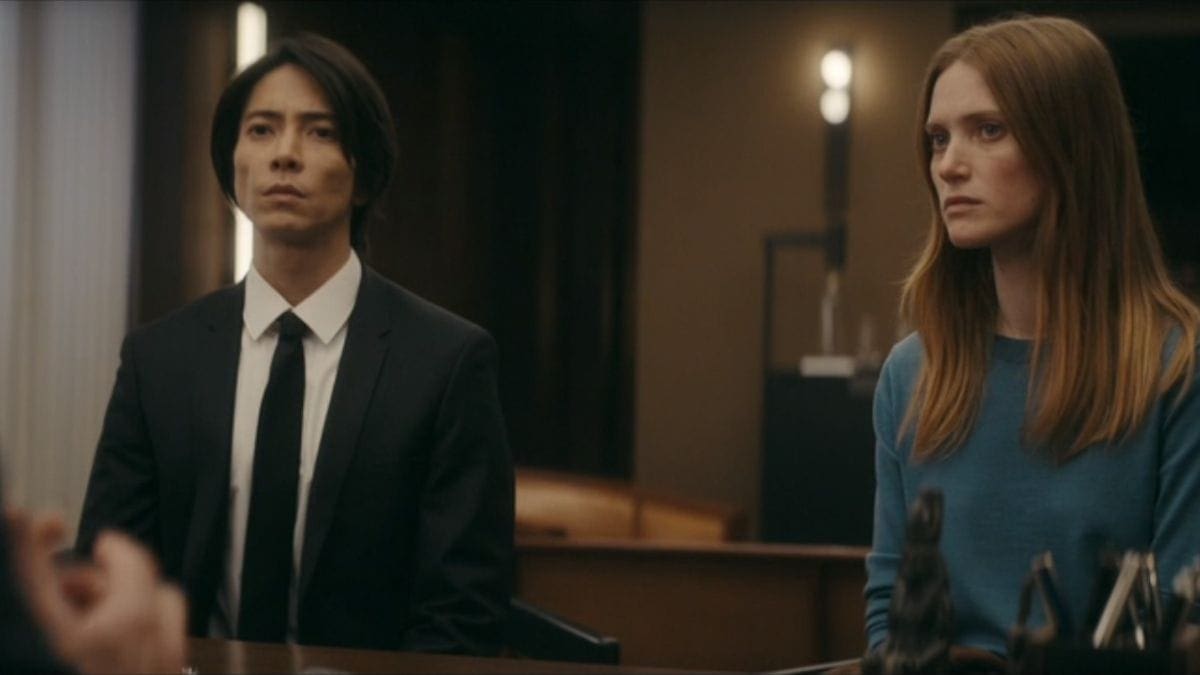Drops of God Episodes 1 and 2 Review: Starring Fleur Geffrier, Tomohisa Yamashita, Makiko Watanabe, Satoshi Nikaidô, Antoine Chappey, Tom Wozniczka, Luca Terracciano and Azusa Okamoto alongside other cast members, Drops of God (神の雫) is written and created by Quoc Dang Tran. It is directed by Oded Ruskin, while Klaus Zimmermann joins the crew as the producer. Kenma Shindo serves as the music producer, Rotem Yaron as the cinematographer and Boaz Mann and Omri Zaloma as editors on this series.
This show is based on the ownership of legacy and what it means to be a successor, especially when the predecessor is a legend in their field. Following in her father’s footsteps to win her inheritance, Camille strives to become one of the best wine sommeliers on the planet.
– Drops of God Episodes 1 and 2 Review Contains Mild Spoilers –
While most films about inheritance follow a terrible parent and their incredibly rife coffers but this one decides to take a different spin on the trope. All the characters fall into the archetype of a hero, and for the female protagonist, this journey is impeccably followed right down to a T. Which is a well enough indication that she will be coming out on top of this three-round test.
Meanwhile, the premise is such a good inciting event for some wonderful story to be told. It is such a niche topic to write about and to base a whole show on, but it works fantastically to tell a fascinating tale of betrayal and devastation. Moreover, the way each backstory is constructed, considering the specific character dynamics, is also a good example of why this show works.
The multi-lingual approach, in all its naturality, also lends the impression that the characters live in a very blended world, often grappling with their identities in a nation that is not their own. This conflict is very well expressed in the show, especially with the male protagonist, who comes from a household specialising in their own business. Amidst all this, the drama and tension doubling after the arrival of Camille is a wonderful plot device to make sure the character is brought out of their shell.

The writing in this show is good but not groundbreaking. It does a great job at sharing tidbits of wine and the specific terminology it takes to learn it. What really takes the cake in this show is the editing, though. The editors have done a stellar job of moving seamlessly between the flashbacks and giving each protagonist the appropriate screen time to flesh their stories out. While the cinematography is nothing to rave about, there are shots in some of the sequences that shift and change beautifully, incorporating the metaphorical experiences the female protagonist goes through.
While the pace is still a little slow, it can be assumed that these two episodes are an expositional avenue to guide the viewers through the dark and murky waters of our characters. It may build pace as the rounds progress and the winner comes close to their destiny. Even then, the narrative sequence is well-constructed and leaves very little room for digression and sub-plots that don’t service the main plot.
Drops of God Episodes 1 and 2 Review: Final Thoughts
While this may not be some critically acclaimed piece of television media, it is an absolutely fun ride to get into. The characters are likeable, the concepts explored around family and trauma are brilliantly relevant, and the writing is not bad that it would cause a hindrance in watching. The writer must admit that the dialogues did get a little out of place sometimes, but those moments can be attributed to getting lost in translation.

However, there is really no reason for everyone else to skip out on watching this show because anyone with an affinity for MasterChef will enjoy what this Apple TV+ series brings in terms of the wine vibes. Additionally, the cliffhanger on which this episode has ended definitely will prompt viewers to enjoy the next ones that would come soon.
Drops of God Episodes 1 and 2 are currently streaming on Apple TV+. What do you think of Issei’s and Camille’s rivalry? Let us know in the comments below.
Also Read: One More Time Review: Reliving the Past Doesn’t Change the Present


